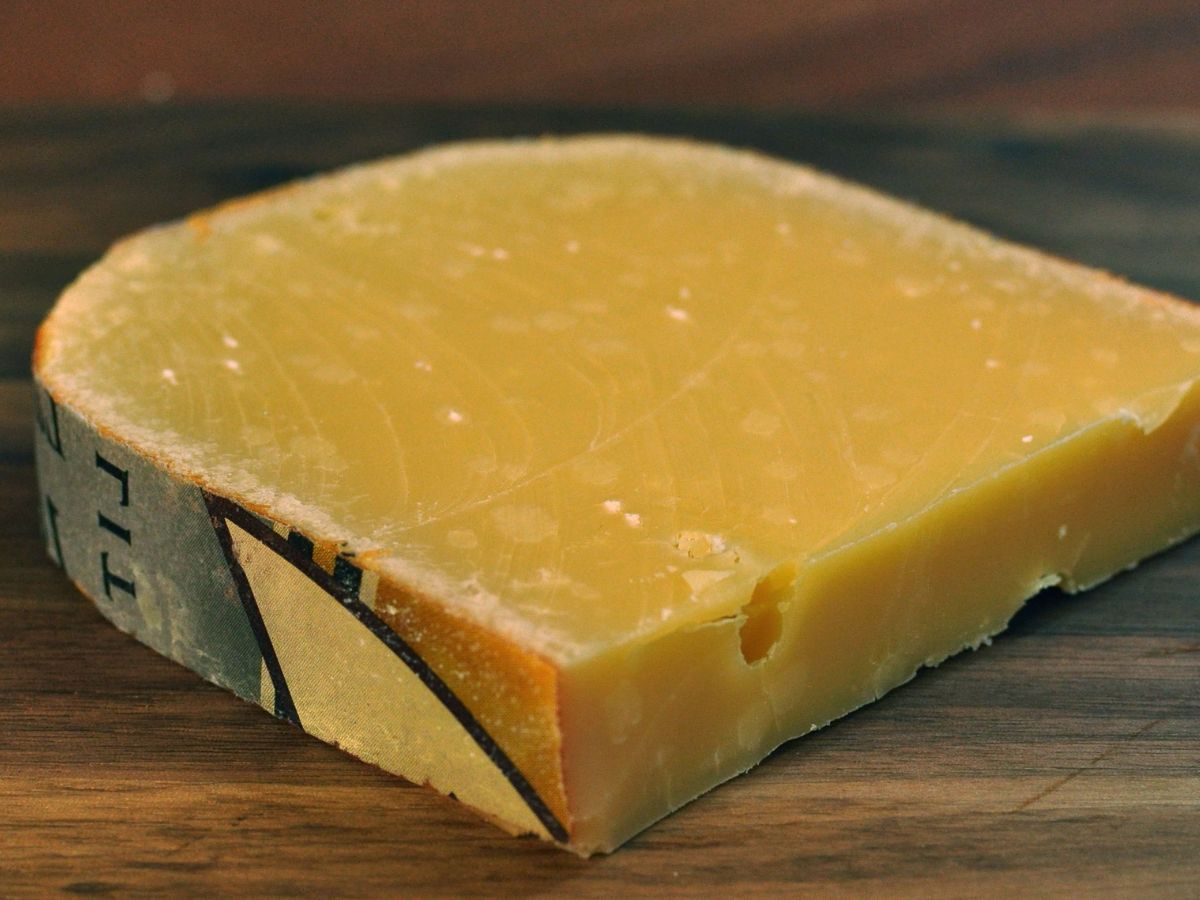
Ever wondered why Gouda cheese has been a staple in cheese platters and sandwiches for ages? Well, you're about to find out! Gouda, not just a delight for your taste buds, packs a punch with its health benefits. From boosting bone health to aiding in weight management, this cheese is more than meets the eye. But wait, there's more to this creamy, rich delight than you might think. With 20 health facts about Gouda cheese waiting to be revealed, you're in for a treat. Let's cut through the cheese and get straight to the good stuff. Gouda cheese isn't just tasty; it's a powerhouse of nutrients that can contribute significantly to your health. Ready to get the lowdown on this dairy delight?
Key Takeaways:
- Gouda cheese, with its unique production process, offers health benefits like calcium, protein, and probiotics. Enjoy it in moderation and explore creative ways to incorporate it into your diet for a tasty and nutritious experience.
- Aged Gouda is almost lactose-free, making it a suitable option for those with lactose intolerance. Its versatility allows for various culinary uses, from creamy sauces to flavorful toppings, showcasing its adaptability in different cultures.
What Makes Gouda Cheese Unique?
Gouda cheese, named after the Dutch city of Gouda, isn't just another cheese. Its rich history and unique production process set it apart. Unlike other cheeses, Gouda is washed-curd cheese, which means during its creation, some whey is replaced with water, reducing the lactose content and resulting in a sweeter taste.
-
Gouda cheese has been around since the 12th century, making it one of the oldest recorded cheeses still made today.
-
Its unique taste comes from a special process where the curds are washed in warm water, halting acid development and giving Gouda its sweet flavor.
Health Benefits of Gouda Cheese
Gouda isn't just delicious; it's packed with nutrients beneficial for your health.
-
Rich in calcium, Gouda can help strengthen bones and teeth. Just one ounce of Gouda provides about 20% of the daily recommended calcium intake.
-
This cheese is also a good source of protein, essential for muscle repair and growth.
-
Gouda contains a significant amount of vitamin K2, which is not found in many foods. Vitamin K2 plays a crucial role in heart and bone health.
-
It's also rich in probiotics, beneficial for gut health. These probiotics help maintain a healthy balance of bacteria in your digestive system.
How Gouda Cheese Fits into a Healthy Diet
Incorporating Gouda into your diet can be both tasty and beneficial, but moderation is key.
-
Despite its health benefits, Gouda is high in saturated fats. Eating it in moderation is essential to maintain a balanced diet.
-
Gouda can be a part of a healthy diet when paired with fruits, nuts, and whole grains, creating a balanced meal or snack.
-
For those watching their sodium intake, it's worth noting that Gouda is a high-sodium cheese. Opting for lower-sodium varieties or consuming smaller portions can help manage sodium levels.
Gouda Cheese and Lactose Intolerance
Lactose intolerance doesn't necessarily mean you have to miss out on Gouda.
-
Aged Gouda is almost lactose-free. The longer Gouda ages, the more lactose is broken down in the aging process.
-
This makes aged Gouda a suitable cheese option for those with lactose intolerance, allowing them to enjoy cheese without discomfort.
Creative Ways to Enjoy Gouda Cheese
Gouda's versatility makes it a fantastic addition to various dishes.
-
Melted Gouda makes for a creamy, flavorful sauce that can be drizzled over vegetables or pasta.
-
It's also perfect for cheese boards, paired with fruits like apples and pears, which complement its sweet and creamy texture.
-
Try adding slices of Gouda to sandwiches or burgers for an extra layer of flavor.
-
Grated Gouda can be a delicious topping for salads or soups, adding a rich taste and texture.
Gouda Cheese in Different Cultures
Gouda cheese has made its mark all over the world, adapted into various cuisines.
-
In the Netherlands, Gouda is often enjoyed at breakfast, melted on bread.
-
In the United States, smoked Gouda has become a popular choice for macaroni and cheese, giving the classic dish a unique twist.
-
Around the globe, Gouda is used in quiches, pizzas, and even desserts, showcasing its versatility.
The Aging Process of Gouda Cheese
The flavor of Gouda cheese changes dramatically as it ages.
A Glimpse into Gouda's Goodness
Gouda cheese isn't just another item on your grocery list. It's a powerhouse of nutrients, offering a blend of health benefits that can surprise you. From strengthening your bones with its rich calcium content to boosting your immune system with vitamin K2, Gouda has got it all. Not to forget, the probiotics in aged Gouda support gut health, making it a smart choice for those looking to improve digestion. Plus, its versatility in recipes means you can enjoy these benefits in numerous delicious ways. Whether you're sprinkling it over a salad or melting it in a sandwich, Gouda adds both flavor and nutritional value to your meals. So next time you're at the store, remember, picking up some Gouda might just be the tastiest way to step up your health game.
Frequently Asked Questions
Was this page helpful?
Our commitment to delivering trustworthy and engaging content is at the heart of what we do. Each fact on our site is contributed by real users like you, bringing a wealth of diverse insights and information. To ensure the highest standards of accuracy and reliability, our dedicated editors meticulously review each submission. This process guarantees that the facts we share are not only fascinating but also credible. Trust in our commitment to quality and authenticity as you explore and learn with us.


